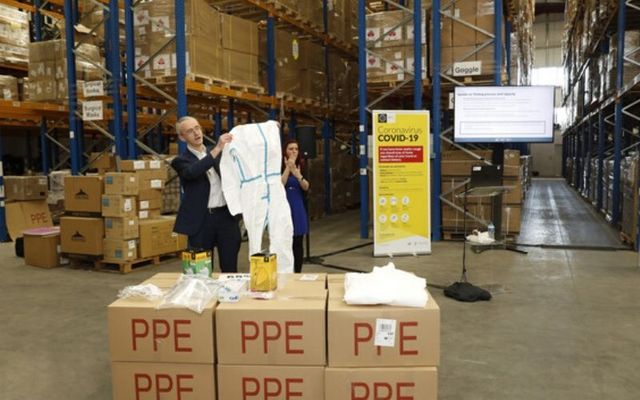Around 20% of Personal Protective Equipment (PPE) delivered from China last week is not suitable to use, according to the HSE.
The first shipment of PPE from China arrived in Dublin last Sunday, but HSE chief executive Paul Reid confirmed that one-fifth of it didn't meet Irish requirements.
The unsuitable PPE cost the HSE approximately €4 million ($4.3 million).
Reid stressed that just because the equipment wasn't suitable for Irish healthcare workers it didn't mean it wouldn't be used at all. The equipment will instead be used in isolation units.
A further 15% of the equipment was deemed "acceptable for use if a preferred product is not available."
The remaining 65% of the first batch was deemed suitable for use.
Professor Martin Cormican, of the HSE's Infectious Disease Unit, said that just because the equipment didn't meet Irish standards didn't mean there was something wrong with it.
Read more: First Aer Lingus flight carrying protective equipment lands in Dublin
He said that Irish hospital staff would need extra training to use some of the suitable equipment.
“It’s unfamiliar to some of our staff,” he said. “ We will need to do some work on training for people to use this product.”
Cormican said that most of the equipment deemed totally unsuitable for healthcare workers were facemasks that did not meet requirements for respiratory masks in Irish hospitals.
Paul Reid said that the HSE had modified its future orders to exclude this type of mask and that the supplier was co-operating.
Reid also said that Ireland would soon be able to double the number of tests it does every day. Starting from next week, the healthcare service will be able to test 4,500 people a day compared to its current capacity of between 2,000 and 2,500 people per day.
The capacity fell below 1,500 a day last week due to a shortage of laboratory equipment.
The HSE is conducting tests in the National Virus Reference Laboratory in UCD and in 18 laboratories in hospitals throughout the country.
Read more: Medtronic Ireland set to double production of life-saving ventilators to combat coronavirus




Comments